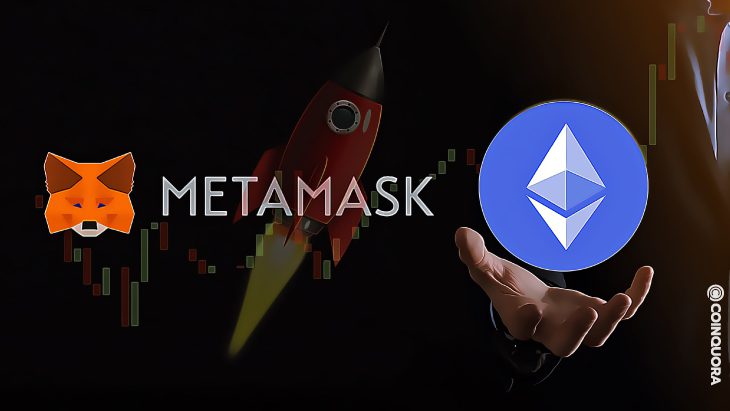- MetaMask announced on Wednesday that they will launch an institutional version of their popular Ethereum-based wallet, called MetaMask Institutional (MMI).
- MetaMask has formed new strategic partnerships with four major cryptocurrency custodians, namely Hex Trust, Paraffin, Gnosis Safe and GK8.
- This announcement follows the active expansion efforts on the firm’s offerings undergone by MetaMask this year.
MetaMask, the decentralized finance (DeFi) wallet and web browser extension, has formed new strategic partnerships with four major cryptocurrency custodians. These custodians are Hex Trust, Paraffin, Gnosis Safe and GK8.
According to an announcement made Wednesday, MetaMask will launch an institutional version of their popular Ethereum-based wallet, called MetaMask Institutional (MMI). MMI will provide decentralized autonomous organizations (DAOs) with management tools that are key in order to participate in DeFi activities.
It was further mentioned in the announcement that MMI will provide institutions with access to DeFi and Web3 while still meeting their compliance needs.
In a recent interview, business lead for EMEA (Europe, the Middle East and Africa) of ConsenSys, Harriet Browning, shared more details relating to the announcement. ConsenSys is the parent company of MetaMask.
Browning stated that “It’s enabling crypto needed funds, exchanges, traditional institutions, enterprise, DAOs, a whole host of different user profiles, enabling them to engage on a secure, well-managed risk-managed framework.”
The main difference between MMI and MetaMask’s primary web browser plugin and wallet lies in how assets are managed. Browning elaborated on this by saying that assets stored in MetaMask’s primary wallet are non-custodial, whereas they are custodial in MMI.
Browning noted: “For institutional security, we have replaced the hardware wallet with a range of custodial partners, to provide essential asset security.”
This announcement follows the active expansion efforts on the firm’s offerings undergone by MetaMask this year. The firm also rolled out an integration with Apple Pay in late March 2022, as well as implemented a series of payment updates. These updates include the ability to purchase cryptocurrency through the application with debit or credit cards.


